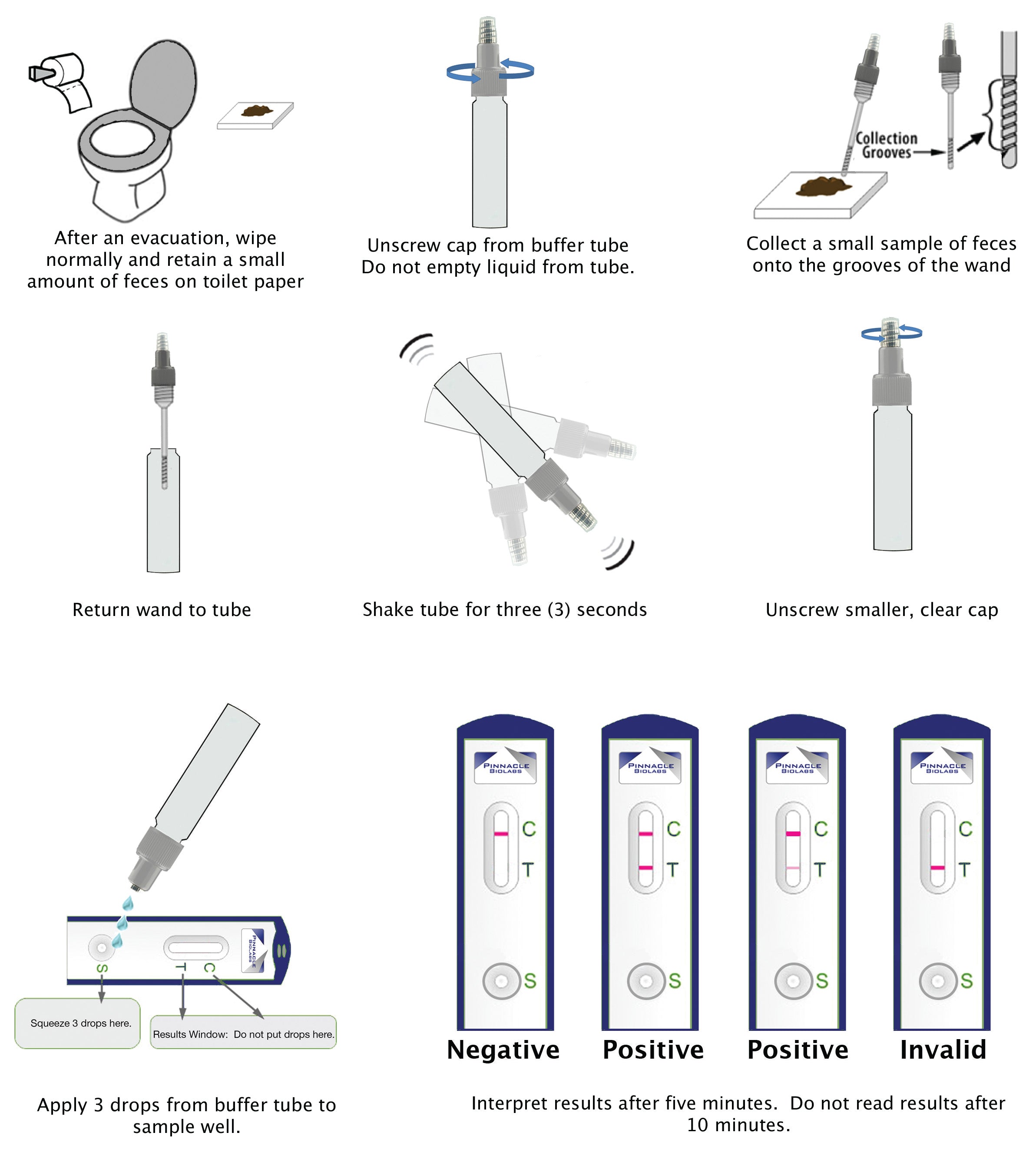Your Cart is Empty
Free Shipping in the USA.
The Fecal Immunochemical Test (FIT) tests human hemoglobin in the stool, which can be an early sign of cancer. FIT only detects human blood from the lower intestines. Medicines and food don't interfere with the test, so it tends to be more accurate and have fewer false positives than other tests. The Second Generation FIT specifically targets gloubin levels in access of 50 ng/mL in the stool sample. Elevated globulin, a component of hemoglobin, the oxygen transport mechanism of blood, has been identified as the preeminent biomarker for colorectal cancer.
Immunochemical fecal occult blood test; iFOBT;

You do not need to do anything to prepare for the test.
Some people may be squeamish about collecting the sample. But you won't feel anything during the test.
Blood in the stool is an early sign of colon cancer. This test is performed to detect blood in the stool that you can't see. This type of screening can detect problems that can be treated before cancer develops or spreads.
Talk with your doctor about when you should have colon screenings.
A normal result means the test did not detect any blood in the stool, indicated by a single line in the "C", or control, region of the cassette. However, because cancers in the colon may not always bleed, you should perform the test annually.
If the FIT comes back positive for blood in the stool, or a single line in the "C" region and a single line in the "T", or test region, your doctor will want to perform other tests, usually including a colonoscopy. The FIT test can't diagnose cancer. Prevention tests such as colonoscopy can also help detect cancer. Both the FIT test and other screenings can catch colon cancer early, when it's easier to treat.
There are no risks from using the FIT.